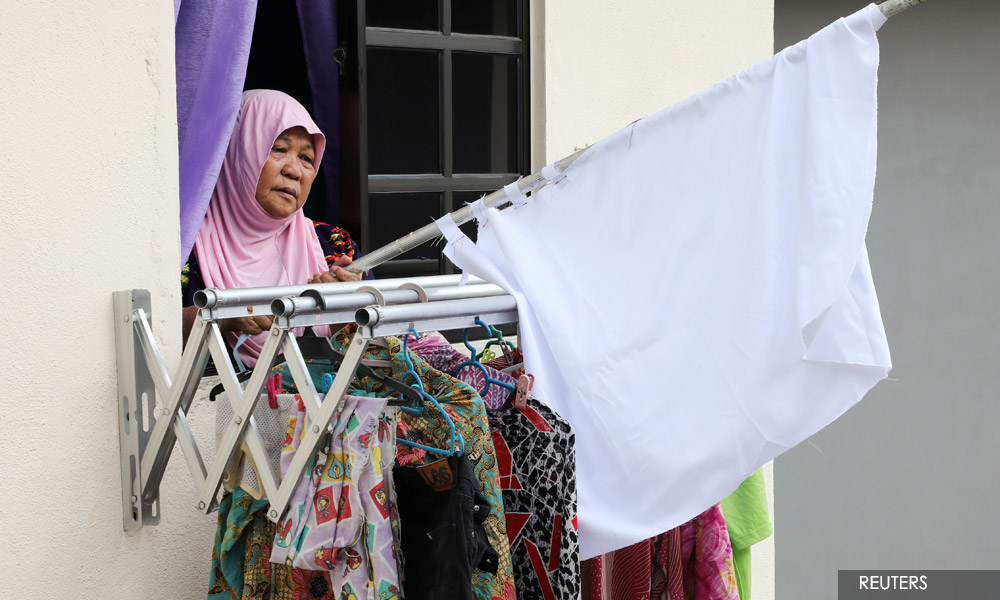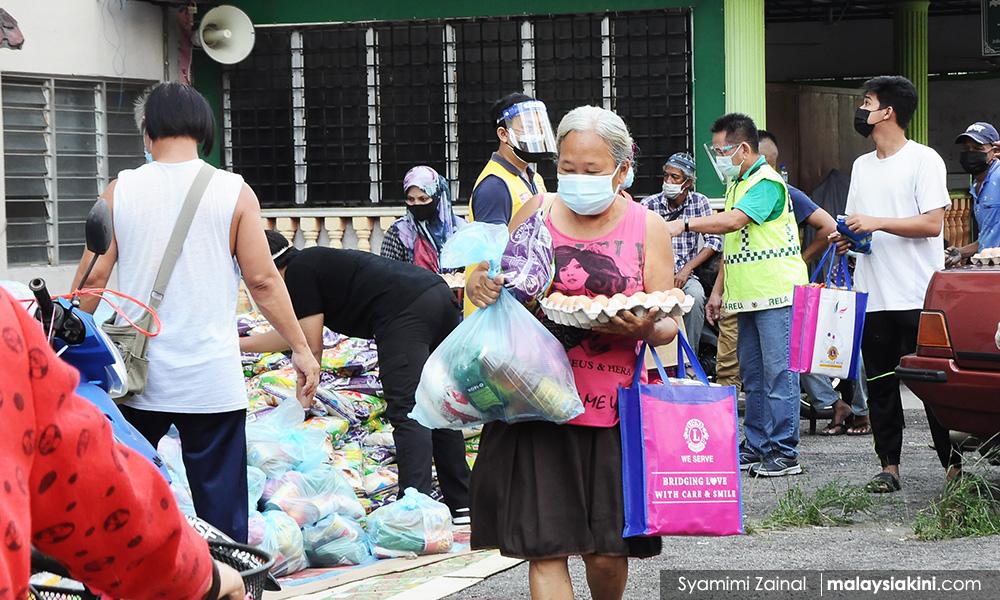COMMENT | Have compassion when sentencing those with hardship
COMMENT | The Covid-19 pandemic has created health, social, business and economic crises across the globe. Malaysia too has not been spared from its impact and consequences.
I read with great sadness and concerns of a large number of rakyat losing jobs and sources of income resulting in many facing severe financial difficulties causing many families to lack basic needs of food and home and driving a number to take their own lives pressured by this severe hardship.
The bendera putih initiative saw the introduction of a great platform for the rakyat to hang a white flag as a sign of their need for help.
This had helped alleviate the hardships of a large number of families.
Although the government had announced the Covid-19 pandemic transforming into an endemic as demonstrated by less number of Covid infections and deaths, the hardships of many still remain.
News reports of men and women stealing food and beverages including Milo and then meted out punishments including being jailed have caught the attention of Malaysians, many of whom strongly feel that a more just and fair treatment/punishment could and should have been provided for these men and women who are desperate for food to survive especially during these times of severe hardships.
Headtopics.com reported on April 29, 2022, that a 31-year-old single father was sentenced to three months in jail for stealing 18 1kg Milo packets at the KWC The Grocer in Asia City in Kota Kinabalu, Sabah. The father had confessed that he had stolen the Milo to sell as he needed money.
Prior to sentencing, his lawyer from the National Legal Aid Foundation in mitigation urged for leniency as he was a single father and needed to look after his child.

And most recently, a 43-year-old mother of four has been sentenced to 14 months in jail for stealing two packets of Milo in a supermarket in Terengganu on May 25. It was reported that she was a repeat offender and a drug addict.
No mention was made as to whether she has a husband to support her nor about whether she has a job to earn an income to support her children and family. However, the High Court has set aside the sentence and ordered a retrial of the case.
In a flashback to 2016, Borneo Post had reported that two men were each jailed for 10 months by the magistrate’s court for stealing six packets of Milo from a supermarket at Bandaran Berjaya in Kota Kinabalu.
Bernama had also reported that for stealing six Milo packets from a supermarket, an unemployed man was sentenced to 15 days jail by the Kuala Lumpur Magistrate's Court on Aug 9, 2016. Additionally, the news agency reported that the accused, who was not represented, has a past record for 11 drug offences, a theft case and a robbery.
In Malaysia, the punishment for theft under Section 379 of the Penal Code is:
“Whoever commits theft shall be punished with imprisonment for a term which may extend to seven years or with fine or with both...”
Thus from the above, it is testimony that although a maximum imprisonment period of seven years with the possibility of a fine as well has been determined for theft, however as trial judges are allowed to impose sentences entirely at their own discretion, this has created sentencing disparities in which different criminals received very different sentences for the same crime.
Humanitarian decision
The year 2016 was before the Covid-19 pandemic and 2022 is a period of grave hardships for many Malaysians impacted by the Covid-19 pandemic which had turned to become endemic.
Thus within this context of severe hardships and difficulties faced by the rakyat, many Malaysians feel that the court should make a humanitarian decision. This would reflect an act of kindness and compassion.
As such, Malaysia should introduce and enhance innovation in the judiciary as well as social innovation for a more compassionate approach to vulnerable groups desperate for food.
It has been internationally and nationally recognised that although food aids are being offered by various sources including NGOs and government, however these are often not known to a wider group and are sadly insufficient.

In Malaysia, many mosques have food banks allocated in the vicinity of the mosque for groups who needs them.
However different mosques apply different processes and procedures to enable those in need to access them.
Some are easier to access compared to others.
As such the relevant ministries could introduce a policy for mosques owned by the government to provide these food banks with much simpler and easier access.
Mosques built by the private sector could also apply the same principles.
More information should be shared about the availability of these food banks provided by the mosques via various channels of social media.
Other places of worship may also be providing these food banks and they could also disseminate more information to wider groups regarding the availability of this offer.
Malaysia could and should introduce technological innovation to help alleviate the difficulties of vulnerable groups needing food by disseminating locations of available food banks, food and other aids offered by the government, private sectors and NGOs.
I hope that food thefts would and could be significantly reduced and fewer Malaysians are subjected to face jail sentences due to stealing food to curb their and their families’ hunger.
SHERIFFAH NOOR KHAMSEAH AL-IDID SYED AHMAD IDID is Innovation & Nuclear Advocate at Alumna Imperial College, University of London, United Kingdom.
The views expressed here are those of the author/contributor and do not necessarily represent the views of Malaysiakini.
RM12.50 / month
- Unlimited access to award-winning journalism
- Comment and share your opinions on all our articles
- Gift interesting stories to your friends
- Tax deductable
